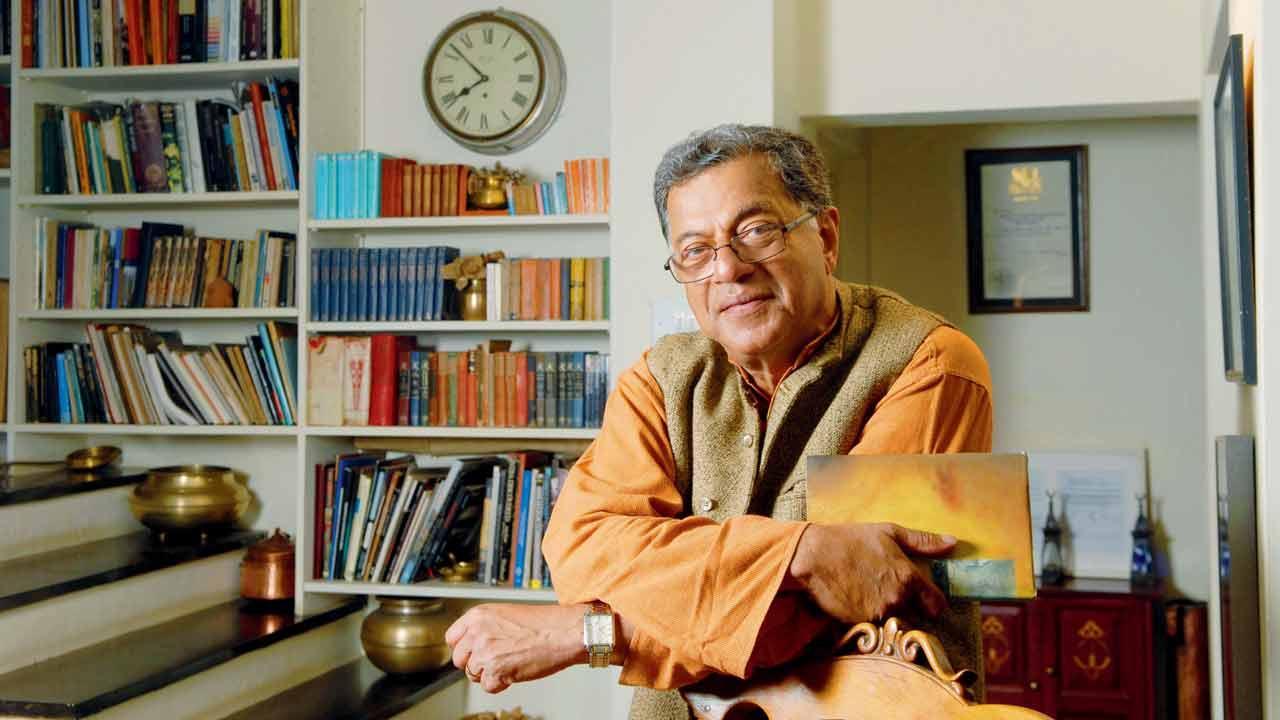A just-released podcast series by Arshia Sattar and Anmol Tikoo give voice to the last few passing thoughts of Girish Karnad, while celebrating his life as a multidisciplinary artiste

Pic/Getty Images
There is serendipity in everything that playwright-director-actor Girish Karnad does. If you’ve read his memoir, This Life At Play, you’d probably know what we are talking about. It’s not then just pure coincidence that he reached out to translator-author Arshia Sattar—she had been pursuing him for years together for an interview—in the early part of 2019, agreeing to speak with her, finally. She suggested May 1 of that year. He insisted June 1. The interviews he did with Sattar and filmmaker-educator Anmol Tikoo, just days before his death (June 10), was recently released by Bangalore International Centre as a nine-part podcast series titled, The River Has No Fear of Memories.
ADVERTISEMENT
The title for the series has been taken from a song in Karnad’s two-act play Hayavadana. “...we found it to be particularly evocative as we remember a man who profoundly impacted India’s cultural arena in the last half of the 20th century,” the hosts shared. In each episode, which is about 40 minutes, we are introduced to Karnad, the artist, his insecurities and strengths, and his struggle as a playwright, who was a champion of the polyphonic Kannada language, and a gifted Konkani storyteller, who also wrote in English.
It’s his diverse talents that also made him question himself and his art, time and again. He talks about films and his lack of interest in it—movies happened by sheer accident, and perhaps out of this plain desire to take ownership of UR Ananthamurthy’s prolific text Samskara, which he admits he wished he’d written. He discusses being consumed by existentialism, the state of modern theatre, and the anxiety of being a playwright, something he has voiced out time and again in his plays. He also talks about the entitlement (and rivalry) that came with belonging to a particularly literary centre in Karnataka—Karnad followed DR Bendre’s school of thought in Dharwad; there was also Kuvempu (Mysuru) and Mogeri Gopalakrishna Adiga (South Canara).
What makes the experience overwhelming is that it’s perhaps for the last time, we as an audience and listener, will hear Karnad’s story narrated by Karnad himself. That Sattar and Tikoo would have loved to hear more from Karnad is evident, and if not for his sudden demise, they probably would have too. But irrespective, the podcast has been stitched together beautifully, with the two hosts weighing in time and again, while also inviting literary heavyweights Vivek Shanbhag, Sunil Shanbag, and Shanta Gokhale, who offer context for Karnad’s comments and his literary legacy. Not to be missed are the readings of scenes from his plays in each episode, read brilliantly by the theatre community of Bengaluru. The readings give us a window into his personal, philosophical and political ideologies.
The most riveting bit is how this series opens. Karnad tells his interviewers and the crew to “look at that branch”. “At the very tail end... you know what’s happening. It’s a fruit bat, which is sucking from a mango fruit. If it flies, you will see the mango... aah there, it’s gone.” Tikoo remembers that moment: “We sound like children... hanging to every word of his.” We couldn’t agree more.
TO LISTEN: bangalore internationalcentre.org
 Subscribe today by clicking the link and stay updated with the latest news!" Click here!
Subscribe today by clicking the link and stay updated with the latest news!" Click here!







